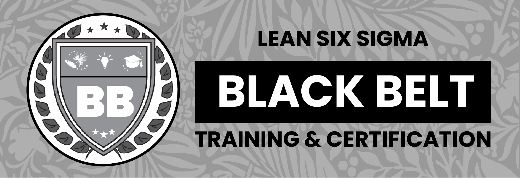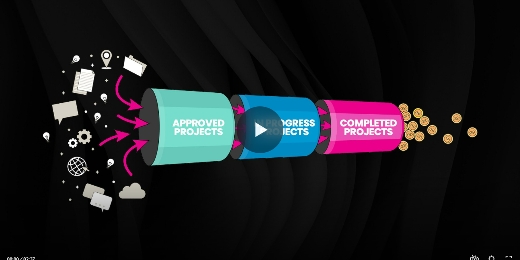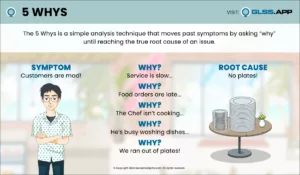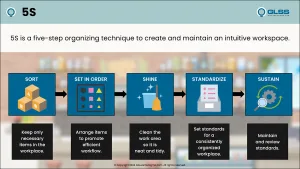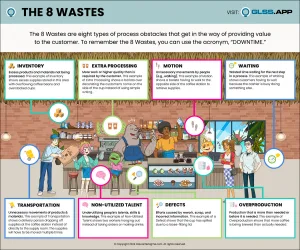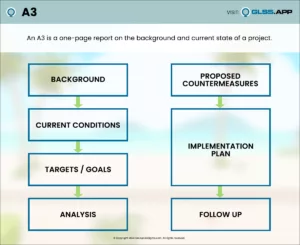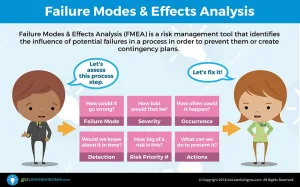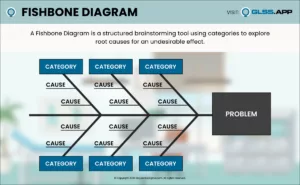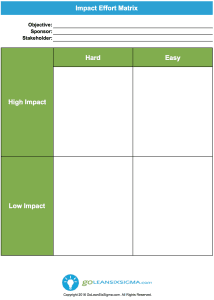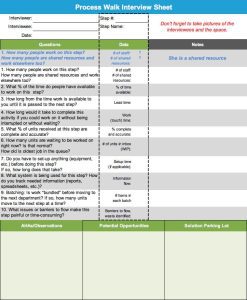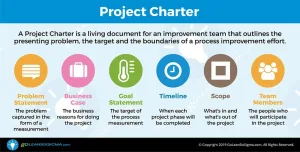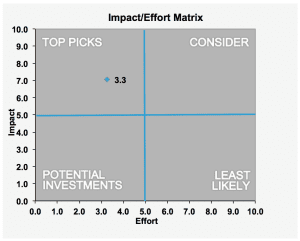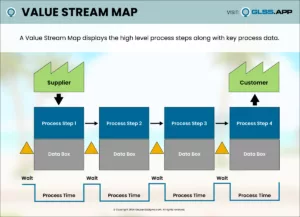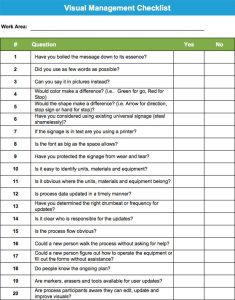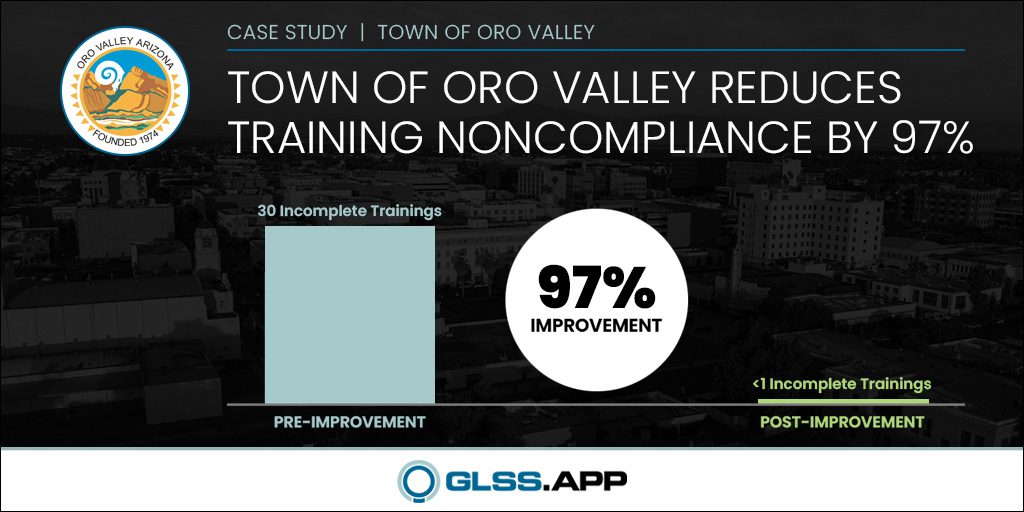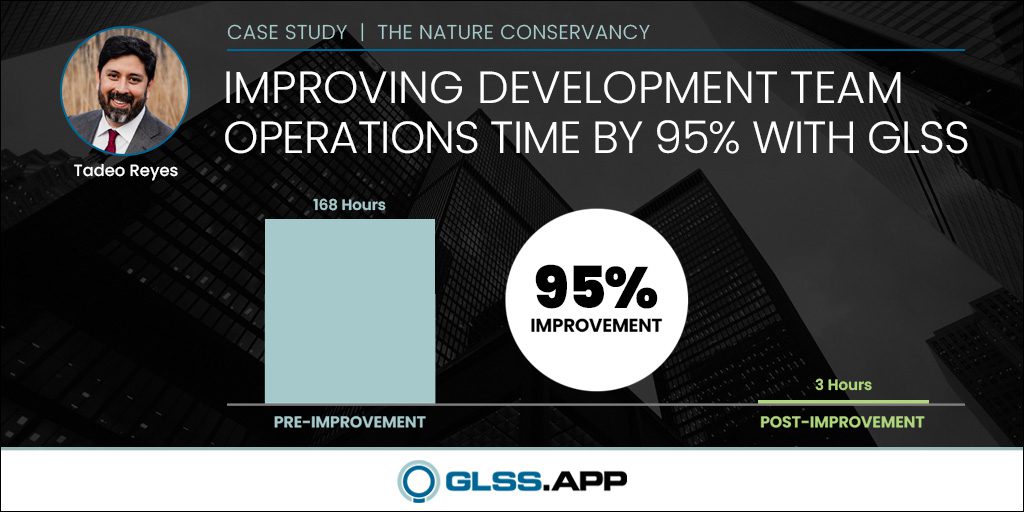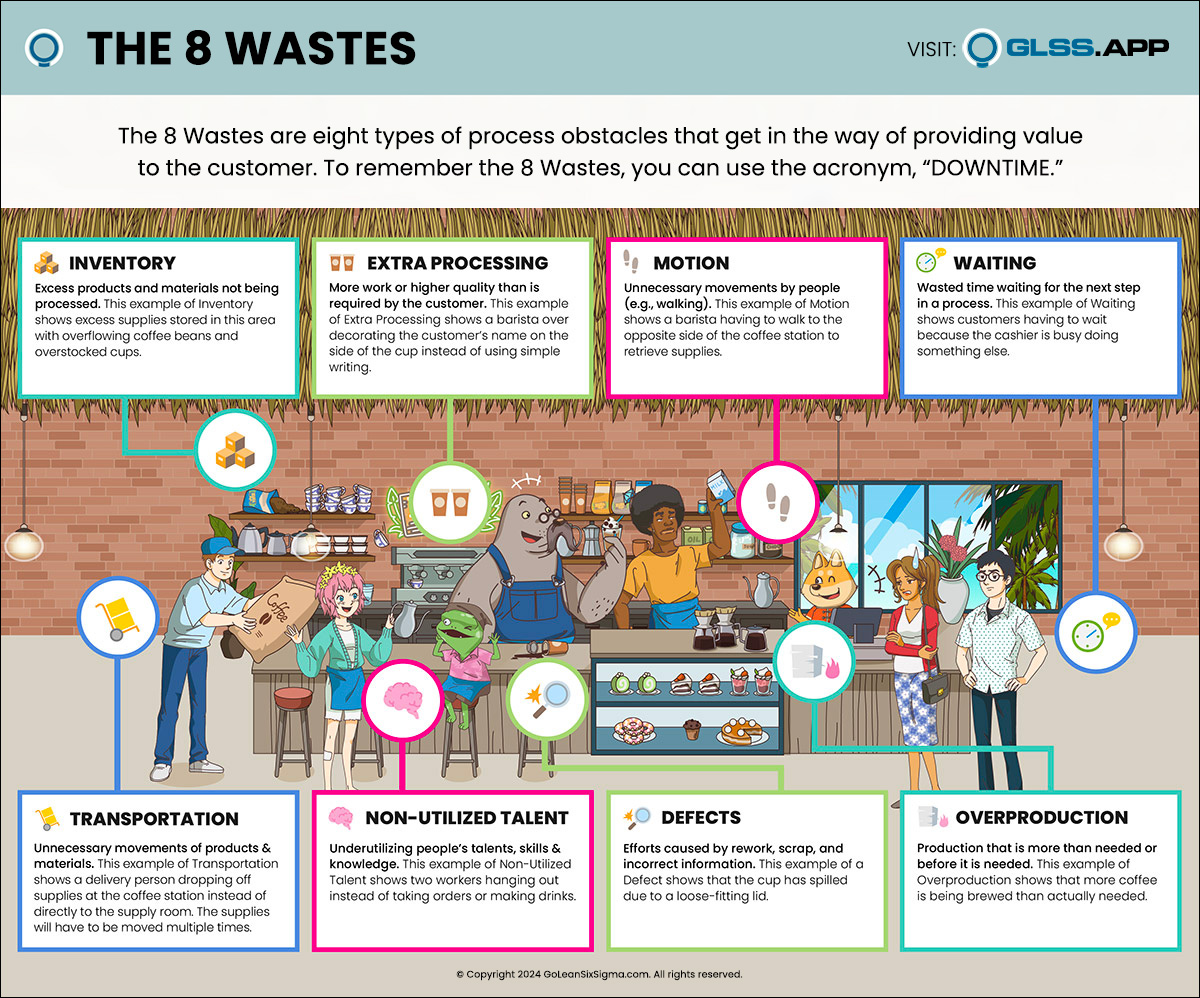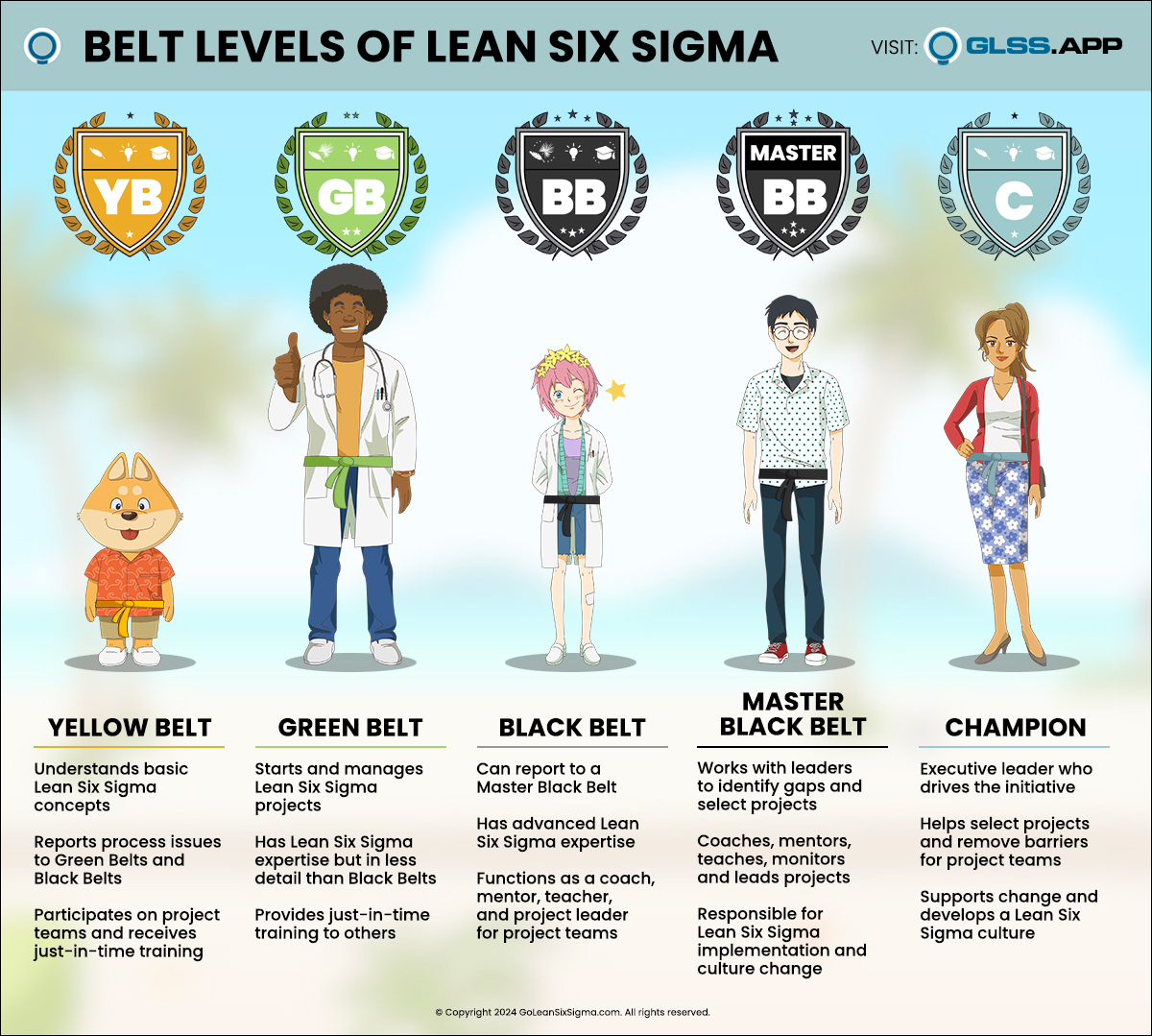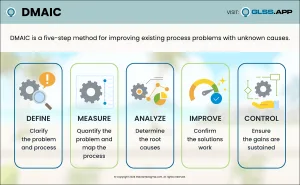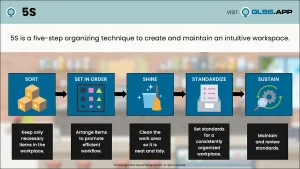
A Java developer asked how he could apply Six Sigma to the software development environment. There seems to be a lot more written content about Scrum production than there is about Lean Six Sigma, and this is what the Java developer also saw. So, can the Java developer apply Lean Six Sigma to software development, and if so, how?
My answer to that is: Yes, yes he can! When introduced to Lean Six Sigma, one can easily see that the concept provides a clear focus on direction and status of projects. These projects can be personal, such as organizing one’s own closet, or working, such as Java and game development. Like blogger Harvard Bonin in “The Elimination of Waste: Lean Six Sigma applied toward Game Development,” I agree that Lean Six Sigma can be applied to game development and I believe it can be used above and beyond.
What Is Lean Six Sigma and How Can It Save Me Time Every Day?
Lean Six Sigma is a combination of two project management techniques called, “Lean” and “Six Sigma.” The goal of both techniques is to help reduce waste and maximize return on investments. According to Merriam-Webster dictionary, waste is defined as “loss of something valuable that occurs because too much of it is being used in a way that is not necessary or effective.”
For example, I feel that it is a waste to keep winter and summer clothes in my closet year round. By eliminating fall and winter clothes for six months out of the year, I could maximize wearing Spring and Summer attire. Overall maximizing my return on investment and the time I spent doing cardio. . .er, shopping.
Lean Six Sigma Removes Waste or Inefficiencies
So where am I going with this? Am I shopping or am I using Lean Six Sigma every day? By discussing Lean Six Sigma in an extremely practical way, I can clearly understand how Bonin came to apply Lean Six Sigma to game development processes.
When considering Game Development experience(s), Bonin shares there are many wastes and inefficiencies. Some of those wastes include but are not limited to:
- Transportation of materials and assets
- Inventory such as documents and too many ideas
- Motion in the environment that causes miscommunication
These wastes then lead to some questions:
- Are teams and departments running behind or ahead of each other?
- Is the code user-friendly? Infested with bugs?
- Who is working on what? Is one person building that should be coding?
- Are teams working in the same area, next to each other, or in separate buildings?
To remove wastes moving forward, Java developers, game developers, closet organizers, sales teams, military operations, and much more can look to The 8 Wastes. GoLeanSixSigma.com shares The 8 Wastes in a colorful infographic:
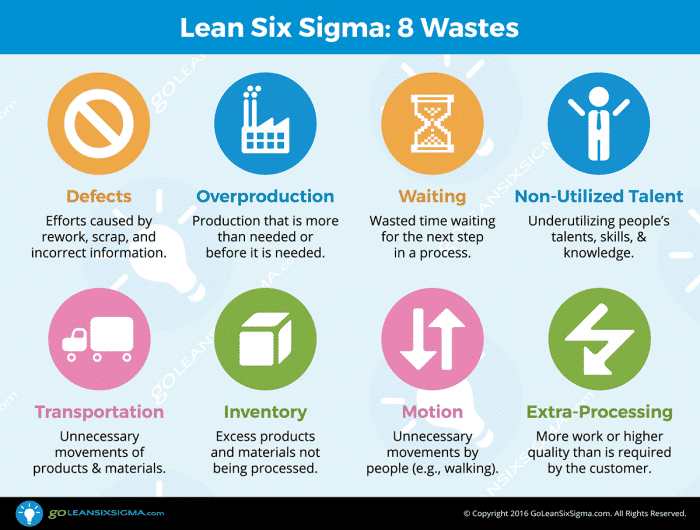
This infographic shows us what Bonin is talking about in his article through images with snippets. By applying Lean Six Sigma to internal game development, there is the opportunity to make new games and sell more at a rapid pace. Teams are organized and gathered accordingly and skills are matched to more than one process in return eliminating too many handoffs.
Solve Any Problem – at Home or at Work
These benefits are just the tip of the iceberg on how Lean Six Sigma can improve software development. Basic problem solving is at the root of Lean Six Sigma, and it can be applied to any problem at work, and even at home.
At the end of the day, framework and techniques are given to us all by Lean Six Sigma. We are responsible for how smoothly daily operations run at work or how life goes. I’m not selling you anything but on a personal note, I’ve already organized my home office and the process of taking care of my puppy after getting my Yellow Belt Certification with GoLeanSixSigma.com.
Like eating clean and working out, Lean Six Sigma isn’t a quick fix diet but rather a lifestyle change – an improved, sustainable, new way of thinking.





